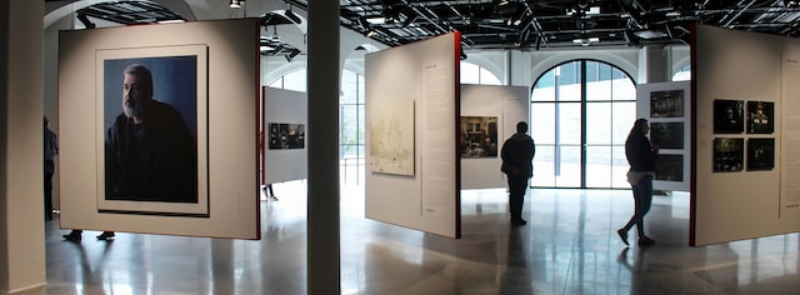
When It Occurs
Every December 10th
Official Website
Timeline
Days Passed (805)
# Hashtags
#NobelPrizeDay #NobleWork
Annually on December 10th, we celebrate Nobel Prize Day, dedicated to recognizing the accomplishments of Alfred Bernhard Nobel, a Swedish engineer, chemist, entrepreneur, and philanthropist. This day pays homage to the visionary who established the prestigious Nobel Prize, acknowledging exceptional feats across diverse domains in the arts and sciences.
History
- Alfred Nobel: Born on October 21, 1833, Alfred Nobel was a Swedish inventor, engineer, and industrialist known for inventing dynamite. Nobel left the bulk of his fortune to establish the Nobel Prizes, which were first awarded in 1901.
- Categories: The original prizes included Peace, Literature, Chemistry, Physics, and Medicine. The Economic Sciences prize was established later in 1968 by the Swedish central bank in Nobel's memory.
- Award Ceremony: The Nobel Prizes are awarded annually on December 10th in Stockholm, Sweden (for all categories except Peace) and in Oslo, Norway (for the Peace Prize).
Significance
Nobel Prize Day holds significant importance for several reasons:
- Recognition of Excellence: It celebrates the achievements of individuals and organizations that have made substantial contributions to humanity.
- Inspiration: It inspires people worldwide by highlighting groundbreaking research, literary works, and efforts toward peace.
- Educational Value: It promotes learning about various fields of study and the impact of scientific, literary, and humanitarian efforts on society.
Nobel Prize Categories and Notable Laureates
-
Peace Prize:
- Awarded to individuals or groups who have made significant contributions to world peace.
- Notable Laureates: Martin Luther King Jr., Mother Teresa, Malala Yousafzai, and the International Committee of the Red Cross.
-
Literature Prize:
- Awarded to authors, poets, and playwrights for outstanding literary work.
- Notable Laureates: Gabriel García Márquez, Toni Morrison, Bob Dylan, and Kazuo Ishiguro.
-
Chemistry Prize:
- Awarded for significant achievements in the field of chemistry.
- Notable Laureates: Marie Curie, Linus Pauling, Ahmed Zewail, and Jennifer Doudna.
-
Physics Prize:
- Awarded for groundbreaking discoveries in the field of physics.
- Notable Laureates: Albert Einstein, Niels Bohr, Richard Feynman, and Stephen Hawking.
-
Medicine Prize:
- Awarded for significant advancements in medical science.
- Notable Laureates: Alexander Fleming, James Watson, Elizabeth Blackburn, and Tu Youyou.
-
Economic Sciences Prize:
- Awarded for contributions to the field of economics.
- Notable Laureates: Paul Samuelson, Amartya Sen, Elinor Ostrom, and Esther Duflo.
Ways to Celebrate
-
Learn About the Nobel Prizes:
- Research: Read about the history of the Nobel Prizes, Alfred Nobel's life, and the selection process for the laureates.
- Documentaries and Books: Watch documentaries or read books about Nobel laureates and their contributions to their respective fields.
-
Explore Nobel-Winning Works:
- Literature: Read books, poems, or essays by Nobel Prize-winning authors.
- Science: Learn about the scientific discoveries and advancements recognized by the Nobel Prizes. Watch lectures or presentations by Nobel laureates.
-
Host a Nobel Prize-Themed Event:
- Discussion Group: Organize a discussion group to talk about the impact of Nobel Prize-winning work in various fields.
- Film Screening: Host a screening of documentaries or films about Nobel laureates and their contributions.
-
Engage in Educational Activities:
- School Projects: Encourage students to research and present on Nobel Prize winners and their achievements.
- Workshops: Participate in or host workshops that focus on topics related to the Nobel Prizes, such as peace-building, scientific research, or literature.
-
Support Nobel Prize-Related Causes:
- Charity Donations: Donate to organizations and causes supported by Nobel laureates, such as human rights groups, educational institutions, and scientific research foundations.
- Volunteer: Volunteer with organizations that align with the values and missions of Nobel Prize winners.
-
Share on Social Media:
- Posts and Stories: Share information about Nobel laureates, their work, and the significance of the Nobel Prizes on social media. Use hashtags like #NobelPrizeDay and #NobelLaureates.
- Inspiration: Post quotes, achievements, and stories about Nobel laureates to inspire others.
Fun Facts About the Nobel Prizes
- First Female Laureate: Marie Curie was the first woman to win a Nobel Prize (Physics, 1903) and the only woman to win in two different scientific fields (Chemistry, 1911).
- Youngest Laureate: Malala Yousafzai is the youngest Nobel Prize laureate, winning the Peace Prize in 2014 at the age of 17.
- Posthumous Awards: Nobel Prizes are not awarded posthumously, but if a laureate dies after the announcement but before the award ceremony, the prize is presented posthumously.
Inspirational Quotes by Nobel Laureates
- "Peace begins with a smile." – Mother Teresa
- "The important thing is not to stop questioning. Curiosity has its own reason for existing." – Albert Einstein
- "There is no greater agony than bearing an untold story inside you." – Maya Angelou
- "The greatest danger to our future is apathy." – Jane Goodall
Conclusion
Nobel Prize Day is a celebration of the remarkable achievements of individuals and organizations that have made significant contributions to humanity. Whether learning about the Nobel Prizes, exploring Nobel-winning works, hosting themed events, engaging in educational activities, supporting related causes, or sharing on social media, there are many ways to honor this day. Nobel Prize Day encourages everyone to appreciate the impact of the Nobel Prizes and to be inspired by the extraordinary accomplishments of the laureates.


